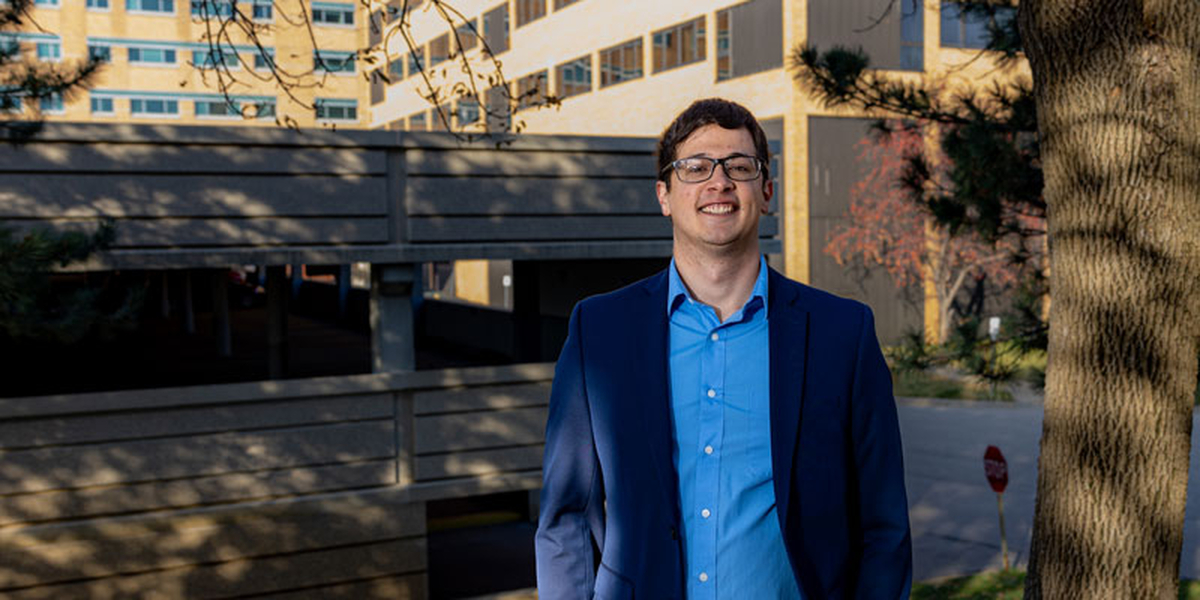
Duncan Mincks’ role as an advanced product engineer dipping his toe into a bit of everything with 3M. The 2016 graduate in biology currently works to qualify what ingredients or products his team may use, how to test them and executing those trials with 3M staff. We recently caught up with Mincks to hear more about his role, how his CBS experience shaped his career path and what advice he has for current undergraduates.
Why did you decide to study biology as an undergraduate?
I always had an interest in biology, even from a young age. Choosing biology as my major, as opposed to something more specific like biochemistry or ecology, seemed like the most logical and direct route for me to study in such a broad field.
Were there particular classes and/or experiences that stand out?
Definitely take the “smaller” classes that are more focused on a specific topic. I took an upper-level/graduate-level cell biology class where we basically read primary research articles and discussed the work. The sort of work which was the core of the class is how research is often done in industry.
What’s a typical day like for you as a product engineer?
In the current pandemic environment, a lot of my day-to-day is qualifying alternative suppliers of raw materials which go into the products I work with. This mostly involves discussing how to qualify the change, designing experiments to be run in the lab, and then executing the experiments with my technicians. A typical day has a lot of meetings, writing documents, and reviewing documents written by other people. I am also able to spend a decent amount of time in the lab. I work with global colleagues - from South Dakota to Poland.
Can you say a little about how you ended up pursuing this line of work?
I worked in a food testing lab right after undergrad, which made me realized I had a strong interest in microbiology. I moved to a contract version of my current job, which was 95% lab based, and then was hired on in January 2020 as a salaried employee. The experiences I gained as a contract worker are very valuable, and most of what I know can only be learned by experience. It was logical for me to then take on further responsibility as a product engineer.
How did your experience at CBS help prepare you?
In college, I learned how to learn, and outside of college I have learned how to apply what I learned to “real world” situations. Like in any large institution, networking with other students and professors in CBS will be a real benefit.
What advice do you have for CBS students interested in a career in industry?
Just start somewhere, doing something. You will likely not be in your “ideal” job right out of college - though don’t undersell or underestimate yourself. Wherever you end up working, try to meet as many people as you can, regardless of the size of the company. From a dozen employees in a single city, to hundreds of thousands of employees spread out across the globe, it will be incredibly helpful to conduct informational interviews to learn about what other people do. Do not neglect the mentorship and advice seasoned career veterans can provide to you; many of these people have been in their career for longer than you have been alive.